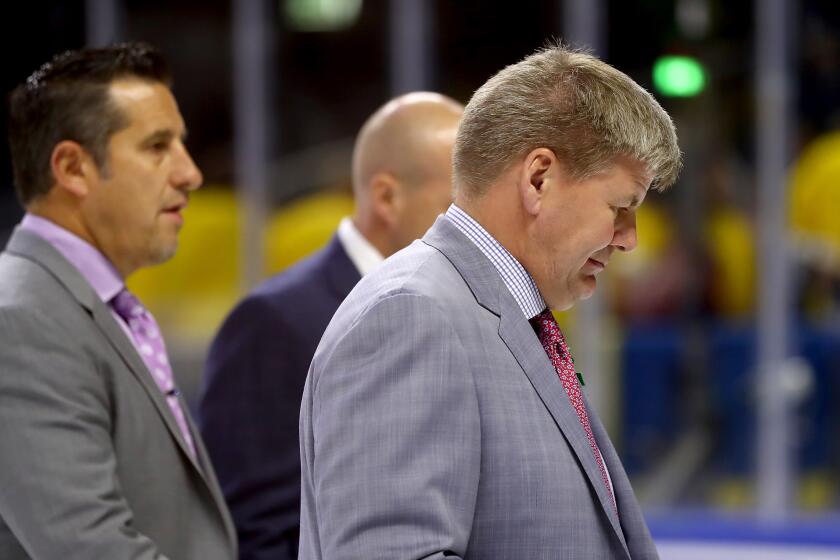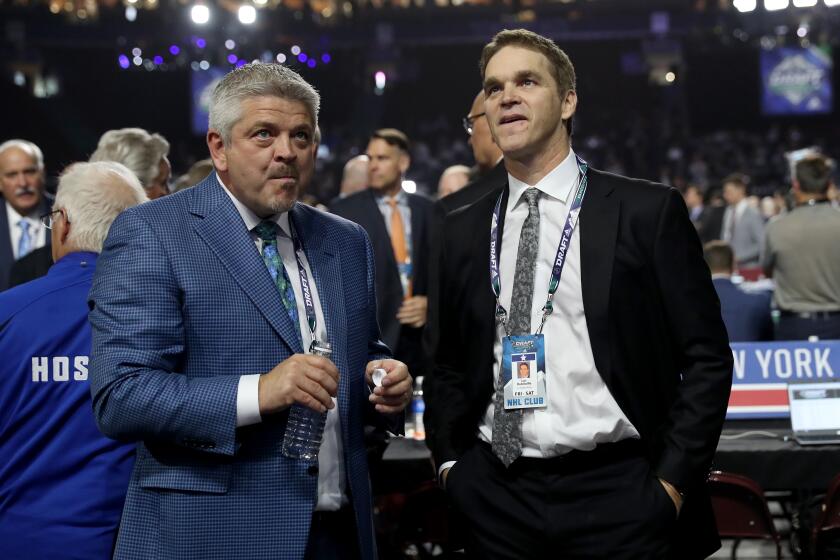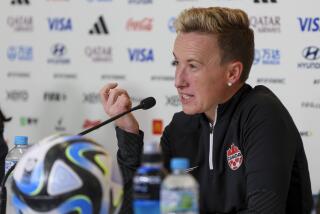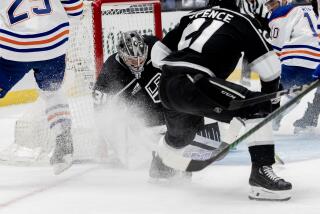Kings coach Todd McLellan weighs in on abuse accusations made against NHL coaches

- Share via
Kings coach Todd McLellan made sure to be clear on two points Tuesday afternoon, during a discussion with media members about the state of coaching in the NHL amid a recent wave of player abuse and mistreatment allegations that has swept across the league.
“I think the line between right and wrong is pretty clear,” McLellan said, before adding: “I think players and coaches, 99.9% of the time, do a real good job of not crossing the line.”
Several serious instances when coaches have erred, however, have made their way to the forefront in the past couple of weeks, setting into motion an existential debate within the sport about what is acceptable, and what is not.
Some examples have been painfully obvious.
Former Calgary Flames coach Bill Peters, for instance, lost his job last week after a player he formerly coached came forward saying Peters directed racial epithets toward him a decade ago. Another former player of Peters subsequently accused the coach of physically abusing him during a game.
Other allegations have been less clear.
Chicago Blackhawks assistant Marc Crawford was claimed to have kicked former Kings player Sean Avery in December 2006, when Crawford was coaching the Kings. On Monday, the Blackhawks announced Crawford would be away from the team while it conducts an investigation into his conduct, even as Avery subsequently came to Crawford’s defense.
Former Detroit Red Wings and Toronto Maple Leafs coach Mike Babcock has been described as verbally abusive or overdemanding by some of his former players. Former Kings coach Darryl Sutter’s stern coaching style was called into question by former Kings player Daniel Carcillo. Coaches and clubs at the minor league and junior hockey levels have also come under fire.
Anyone who resorts to physical or verbal abuse to convey a message is a coward and doesn’t deserve the honor of being called “coach.”
Against this backdrop, McLellan carefully answered questions Tuesday. A full-time coach since 1993, the 52-year-old is one of the most experienced bench bosses in the NHL. But when he was a player, “the game was just different,” he said.
“The best analogy I can use is, my elementary school experience was completely different than the elementary school experience that my kids went through,” McLellan continued. “No one stands in the corner anymore. No one puts their heads on their desks. Ears aren’t pulled. You don’t go to the principal’s office to see or get the strap.
“Society has changed. The coaches that I had growing up did a tremendous job for me as an individual. Hockey and life. I’m appreciative of them. The soft side, but the hard side as well. They helped me by being hard on me sometimes. I hold no ill will to any coaches that were direct with me or pushed me — not physically — but pushed me to become a better player. Challenged me.”
Still, the recent developments around the league have put McLellan in a state of reflection. He reexamined moments from his career, which has included previous NHL head coaching jobs in San Jose (2008-2015) and Edmonton (2015-2019). He also was an assistant under Babcock in Detroit from 2005-2008, and was the head coach of the 2015 Canadian IIHF World Championship team on which Peters was an assistant.
“I can’t speak for anybody other than myself,” McLellan said. “I think we all take stock of our careers at some point, on a regular basis. Not just when there’s crisis, or whatever you want to call it. We all take stock of it, we think of situations.
“You feel good about some that you handled. And boy, if I could have a do-over in that situation, it doesn’t mean you did anything wrong, but maybe the tone of voice you used or the direction that you gave could be dealt a little firmer sometimes, or a little softer.”
He recently reached out to his son, Tyson, a senior on Denver University’s Division-I hockey team, to see if he experienced any unscrupulous coaching. Tyson didn’t share any personal horror stories.
Kings President Luc Robitaille knows it’s a mistake to compete with the Lakers and the Dodgers for fans, but he remains focused on making contact with his team’s supporters.
But “he said, ‘Dad, I’ve been called almost everything you can think of on the ice,’” McLellan said. “In the battle, sometimes we can forget that’s the workplace too. Player to player. The trash-talking that goes on in every sport. He said to me, ‘It doesn’t affect the way I play. It’s water off my back and away we go.’ I think most players would tell you that. But there still is crossing the line in that situation.”
Asked if that line between right and wrong has changed during his time around the game, McLellan said yes.
“The line between pushing a player — I’m not talking physical — but getting the player to maximize his physical talents and to get a team to pull together and go further into their toolbox than they ever have, is delicate,” he said. “Sometimes feelings are hurt. There’s never an intention behind it, but there are feelings that get hurt.”
Building trust between himself and his players is McLellan’s personal aim. To do so means treating them with respect, and expecting it in return.
“It’s easy to be liked. You have to earn the respect,” McLellan said. “That comes through a lot of different avenues. One, the player has got to know you care about them, and not just if you win games or lose games. But how can we help that individual?”
More to Read
Go beyond the scoreboard
Get the latest on L.A.'s teams in the daily Sports Report newsletter.
You may occasionally receive promotional content from the Los Angeles Times.









